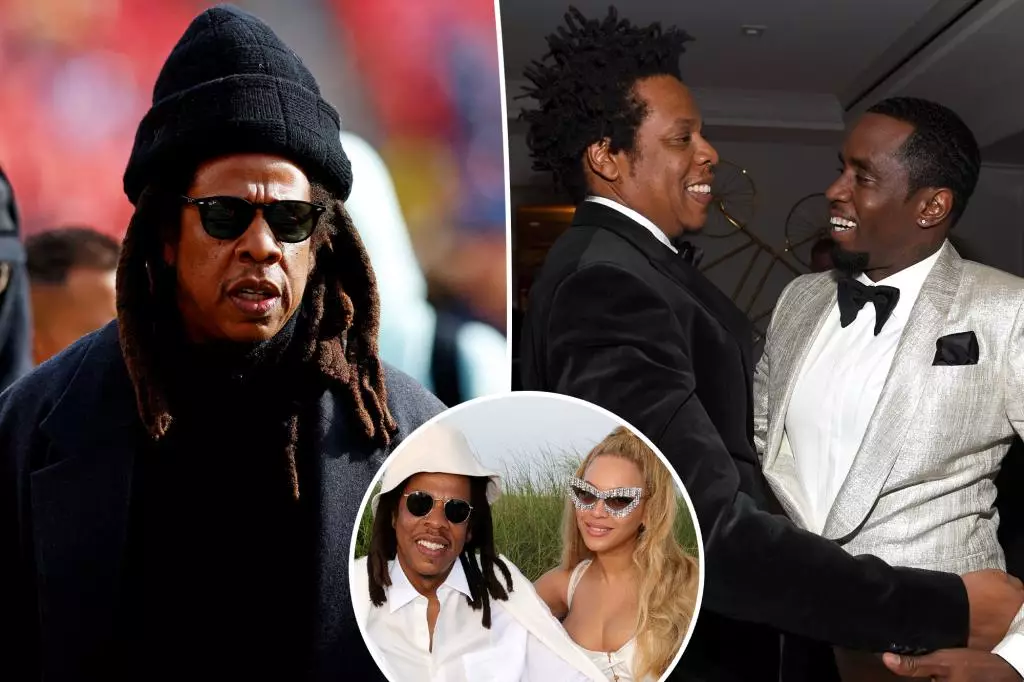The music industry is no stranger to scandal, particularly when it involves high-profile figures like Jay-Z (born Shawn Carter). Recently, the 55-year-old rapper found himself embroiled in a turbulent legal battle when he was accused of raping a 13-year-old girl alongside his friend, Sean “Diddy” Combs, under the gaze of an unnamed celebrity. The allegations are both shocking and serious, placing immense pressure on Jay-Z’s reputation. In a robust statement to Page Six, Jay-Z labeled the lawsuit—re-filed by attorney Tony Buzbee—as a “blackmail attempt,” rejecting the claims outright and emphasizing his determination to fight back against what he sees as an egregious mischaracterization of his character and actions.
Jay-Z’s response is not just a denial—it underscores a strategic standpoint. He claims that Buzbee’s intentions are rooted in a calculated effort to exploit public outrage. “What [Buzbee] had calculated was the nature of these allegations and the public scrutiny would make me want to settle,” he articulated, exhibiting a profound understanding of the psychological dynamics at play in celebrity culture and legal disputes. To many, this form of public denial can be seen as a necessary exercise in self-defense, leveraging one’s public platform to counteract damaging narratives.
He asserts, “No sir, it had the opposite effect!” His choice of words denotes a mix of defiance and a protective stance not only for himself but for his family. Through these declarations, Jay-Z aims to reclaim the narrative surrounding the case, transforming it into a critique of the societal proclivity to jump to conclusions regarding prominent figures, especially when salacious details are involved. This ability to engage with public discourse is crucial in the age of social media, where reputations can be tarnished in an instant.
One of the more poignant aspects of Jay-Z’s statement is his grounding in moral responsibility. He argued that if such heinous acts were indeed committed, they should prompt criminal prosecution rather than a civil suit. The rapper stated, “Whomever would commit such a crime against a minor should be locked away,” reflecting not only a commitment to personal accountability but also a broader sense of social justice. His call for a criminal complaint highlights an underlying philosophy concerning the treatment of real victims versus those purportedly exploiting the system.
Moreover, Jay-Z’s statements reveal an emotional layer of his experience. He expressed heartbreak over the implications these accusations could have on his family, particularly for his young daughter, Blue Ivy, who is at an impressionable age where the public’s scrutiny might become part of her social reality. “I mourn yet another loss of innocence,” he wrote, capturing the duality of public life versus private reality. This emotional transparency reveals a human side often obscured by celebrity persona and could resonate with many families facing unwarranted scrutiny.
In his defense, Jay-Z does not just dismiss claims but also criticizes the character of his accuser, suggesting a pattern of conduct that could undermine the credibility of the allegations. He remarks on Buzbee’s purported lack of integrity, asserting, “Marines are known for their valor; you have neither honor nor dignity.” This remark is loaded with implication, not just personally attacking the lawyer but also invoking notions of honor and integrity that resonate deeply within the military and societal frameworks. His rhetoric suggests that the altercation is more than a legal dispute; it represents a clash of values and ethics.
Final Reflections: Victims and the Exploitation of Narrative
Ultimately, Jay-Z’s fervent assertions reflect his desire to protect himself and his family while addressing broader societal issues regarding victimization and exploitation. He expressed empathy for genuine victims, lamenting how their stories can be weaponized for profit. “Heart and support goes out to true victims in the world,” he said, directing attention to the complexities individuals must navigate amidst sensationalist narratives.
In an era where celebrity culture and legal battles intersect with public opinion, Jay-Z stands as a figure striving for narrative control, accountability, and protection of innocence in the face of daunting accusations.

